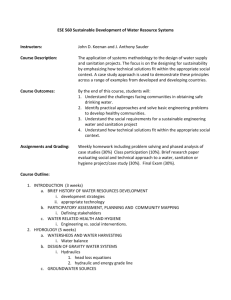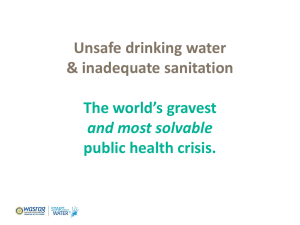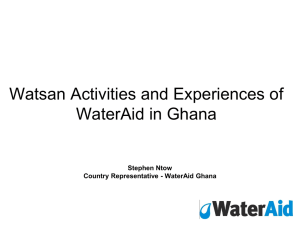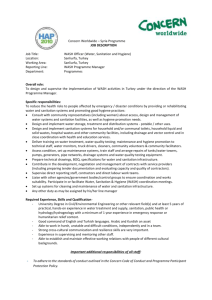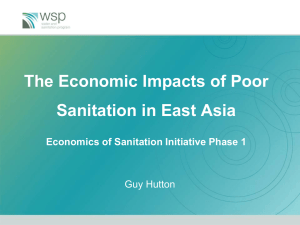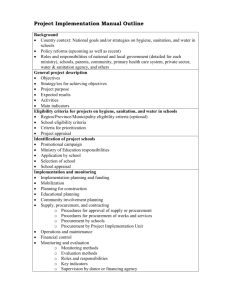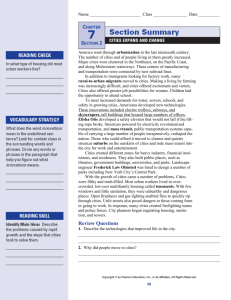Speech for the Thematic Debate of the General Assembly
advertisement
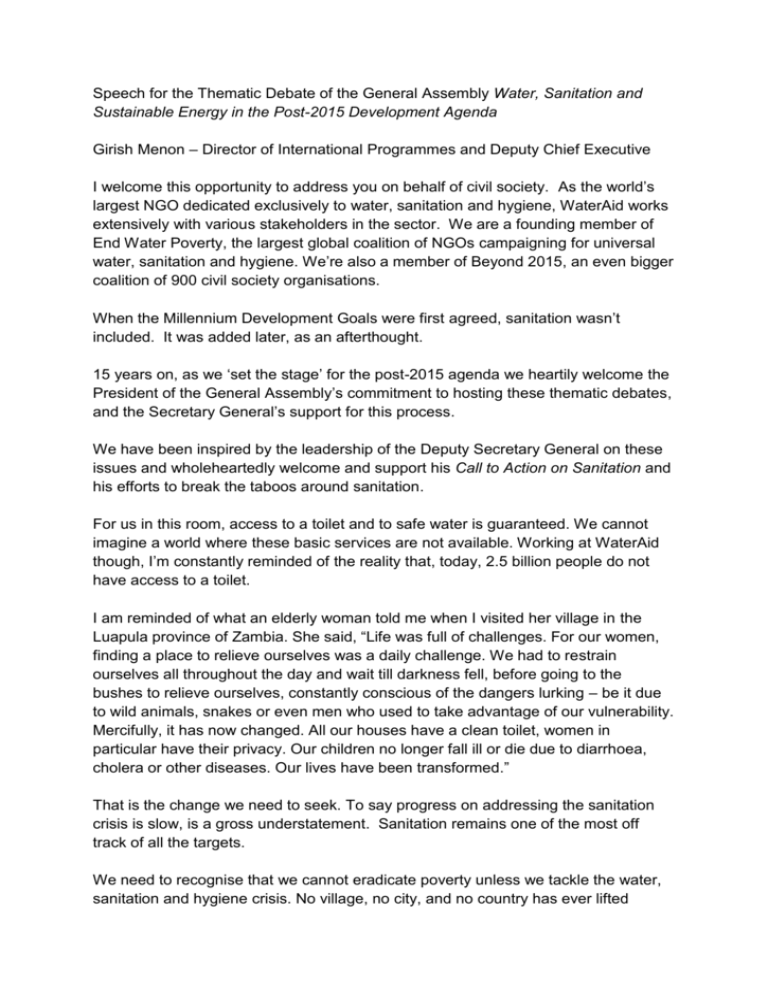
Speech for the Thematic Debate of the General Assembly Water, Sanitation and Sustainable Energy in the Post-2015 Development Agenda Girish Menon – Director of International Programmes and Deputy Chief Executive I welcome this opportunity to address you on behalf of civil society. As the world’s largest NGO dedicated exclusively to water, sanitation and hygiene, WaterAid works extensively with various stakeholders in the sector. We are a founding member of End Water Poverty, the largest global coalition of NGOs campaigning for universal water, sanitation and hygiene. We’re also a member of Beyond 2015, an even bigger coalition of 900 civil society organisations. When the Millennium Development Goals were first agreed, sanitation wasn’t included. It was added later, as an afterthought. 15 years on, as we ‘set the stage’ for the post-2015 agenda we heartily welcome the President of the General Assembly’s commitment to hosting these thematic debates, and the Secretary General’s support for this process. We have been inspired by the leadership of the Deputy Secretary General on these issues and wholeheartedly welcome and support his Call to Action on Sanitation and his efforts to break the taboos around sanitation. For us in this room, access to a toilet and to safe water is guaranteed. We cannot imagine a world where these basic services are not available. Working at WaterAid though, I’m constantly reminded of the reality that, today, 2.5 billion people do not have access to a toilet. I am reminded of what an elderly woman told me when I visited her village in the Luapula province of Zambia. She said, “Life was full of challenges. For our women, finding a place to relieve ourselves was a daily challenge. We had to restrain ourselves all throughout the day and wait till darkness fell, before going to the bushes to relieve ourselves, constantly conscious of the dangers lurking – be it due to wild animals, snakes or even men who used to take advantage of our vulnerability. Mercifully, it has now changed. All our houses have a clean toilet, women in particular have their privacy. Our children no longer fall ill or die due to diarrhoea, cholera or other diseases. Our lives have been transformed.” That is the change we need to seek. To say progress on addressing the sanitation crisis is slow, is a gross understatement. Sanitation remains one of the most off track of all the targets. We need to recognise that we cannot eradicate poverty unless we tackle the water, sanitation and hygiene crisis. No village, no city, and no country has ever lifted themselves out of poverty without first improving water, sanitation and hygiene. The economic gains of investing in water and sanitation are huge. The World Health Organisation states that as much as $5-$8 is returned for every $1 spent on sanitation. Poor sanitation directly affects health. Diarrhoea, spread by a lack of hygiene and sanitation, claims the lives of 2,000 children under the age of five every single day – that’s the same as malaria, AIDS and measles combined. It directly affects education. With only 45% of schools having adequate toilets, girls drop out in droves when they start menstruating. Women and girls bear the brunt of the burden when water, sanitation and hygiene facilities cannot be accessed by them – all too often carrying the heavy load of fetching water; all too often sexually violated when they go in search of a place to relieve themselves in the open; and far too often, discriminated from society when they menstruate and have no means to manage it hygienically. We have the opportunity to change this. We know that this crisis can be tackled. Working with some of the world’s poorest communities, and engaging with national governments, donors, civil society coalitions and the private sector, WaterAid is able to speak with confidence and credibility to find lasting solutions to address this crisis. For the last three years, the water and sanitation sector has been consulting on targets for the post-2015 framework. This has the support of the experts – the World Health Organisation, UNICEF and 200 other organisations that have come together around a shared vision of universal access to safe drinking water, sanitation and hygiene. So that by 2030: No one practises open defecation. Every home, every school and every health centre has drinking water, sanitation and hygiene. The proportion of the population without services to make drinking water safe and safely dispose of human waste are halved. Inequalities are progressively eliminated. The sector agrees what can and should be done. Now it’s up to governments to put safe water, sanitation and hygiene at the forefront of the future framework, recognising that access to water and sanitation is a basic human right, and absolutely central to human development and ensuring dignity. As Mahatma Gandhi once famously said, “Sanitation is more important than independence.” Over the course of this debate, I urge you as leaders to remember that even today, over 1 billion people will defecate in the open. And that their health, education, safety, dignity and the lives of their children are at risk because they don’t have a toilet. There is a global growing movement that wants to see real global change for the world’s poorest. We must come together and commit to a bold and ambitious post-2015 framework with targets that will ensure everyone, everywhere has water, sanitation and hygiene by 2030. After all, if you’re building a house you don’t put the plumbing on the outside, you put it in first, and you make sure that it will work well into the future. And finally, let me leave you with this – if it’s not enough to hear it from me, from WaterAid, from the hundreds of organisations working on this issue, then please listen to the voices of many. More than two million people have asked for sanitation and safe water to be prioritised. Let’s not fail them.
